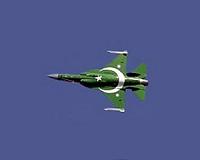| . |  |
. |
Tehran (AFP) Nov 18, 2010 Iran has "successfully" test fired an upgraded version of a Soviet-era missile, a commander said in a report on Thursday, after Moscow dropped plans to supply Tehran with S-300 missiles. The website of Iran's English-language Press TV reported that the Islamic republic had "designed an air defence system that has the same capability as the Russian-made S-300 system." "We have developed the system by upgrading systems like the S-200, and we have tested it successfully using all our potential and experience in the Islamic Revolution Guards Corps (IRGC), the Army and the Defence Ministry," it quoted Brigadier General Mohammad Hassan Mansourian, the deputy commander in the Iran's air defence unit, as saying. It was unclear from the report about the nature of the test, and whether it was carried out during ongoing aerial defence war games. Last week Mansourian had told the state news agency IRNA that "very soon we will test long-range aerial defence missiles, including Iranian S-300s." Iran's military has long touted its intentions to come up with a long-range anti-aircraft missile system comparable to the S-300, after Moscow's refusal to deliver that system because of UN sanctions against Tehran over its nuclear drive. "Long-range threats comprised some 20 percent of threats against the nation, and we have developed solutions for it, including an improvement of the S-200 system," Mansourian was quoted as telling IRNA on Wednesday. The S-300 is a ground-to-air missile system of medium and high altitude and with a long-range capability (up to 150 kilometres, 90 miles), according to specialised military and aeronautics websites. It was developed by Russia in the 1980s to intercept multiple targets, aircraft or missiles, like the US Patriot system. The S-300 is the next generation of the S-200, which uses technology that dates back to the 1960s. Tehran purchased S-200s from the former Soviet Union in the 1980s. Russian President Dmitry Medvedev signed a decree in September banning supplies of S-300 missiles and other arms to Iran, citing UN Security Council Resolution 1929. Moscow came under strong US and Israeli pressure not to go ahead with the sale of the weapons system which was seen as complicating any military action against Iran over its nuclear programme. Both Israel and the United States have refused to rule out resorting to military action to prevent Iran acquiring what they suspect is nuclear weapons capability, an ambition Tehran strongly denies. Top Iranian officials, including President Mahmoud Ahmadinejad, have lashed out at Russia for "selling out" to the United States by cancelling the S-300 deal. Moscow, which has been a strong ally of Iran and built the Islamic republic's first nuclear power plant in the southern city of Bushehr, said it would reimburse Tehran for its downpayments on the deal. The contract was estimated to be worth a total of 800 million dollars (572 million euros). Ahmadinejad was to meet Medvedev later on Thursday on the sidelines of a regional summit in the Azerbaijani capital Baku.
Share This Article With Planet Earth
Related Links Learn about missile defense at SpaceWar.com All about missiles at SpaceWar.com
 Pakistan to arm fighter jets with Chinese missiles
Pakistan to arm fighter jets with Chinese missilesBeijing (AFP) Nov 18, 2010 Pakistan has confirmed it will buy Chinese missiles and flight systems to equip its 250 JF-17 Thunder jet fighters as it seeks to deepen military cooperation with Beijing, state media said Thursday. Rao Qamar Suleman, air chief marshal of the Pakistan Air Force, told the Global Times newspaper Chinese radar systems and SD-10 mid-range homing missiles would be used on the fighters co-develope ... read more |
|
| The content herein, unless otherwise known to be public domain, are Copyright 1995-2010 - SpaceDaily. AFP and UPI Wire Stories are copyright Agence France-Presse and United Press International. ESA Portal Reports are copyright European Space Agency. All NASA sourced material is public domain. Additional copyrights may apply in whole or part to other bona fide parties. Advertising does not imply endorsement,agreement or approval of any opinions, statements or information provided by SpaceDaily on any Web page published or hosted by SpaceDaily. Privacy Statement |